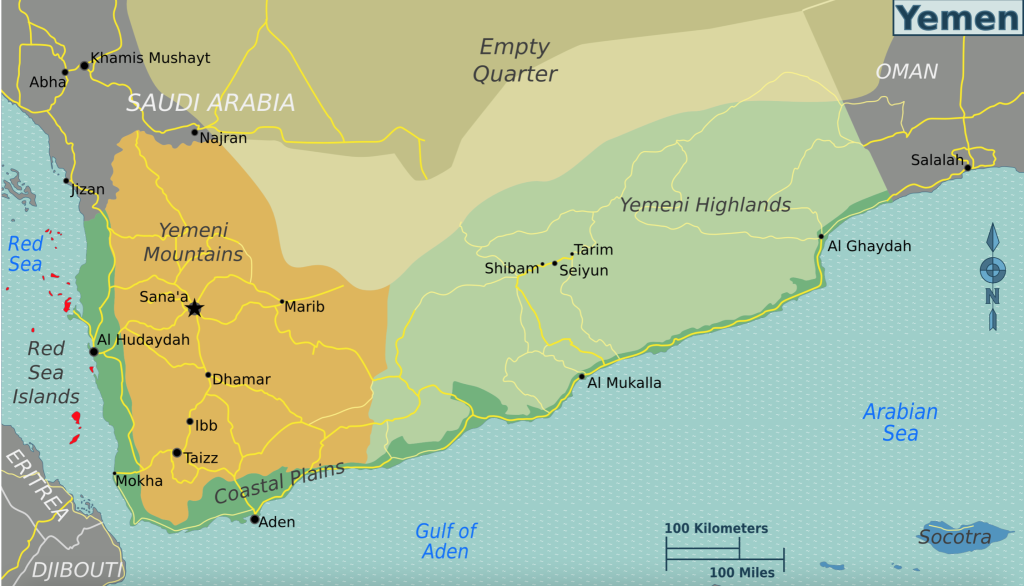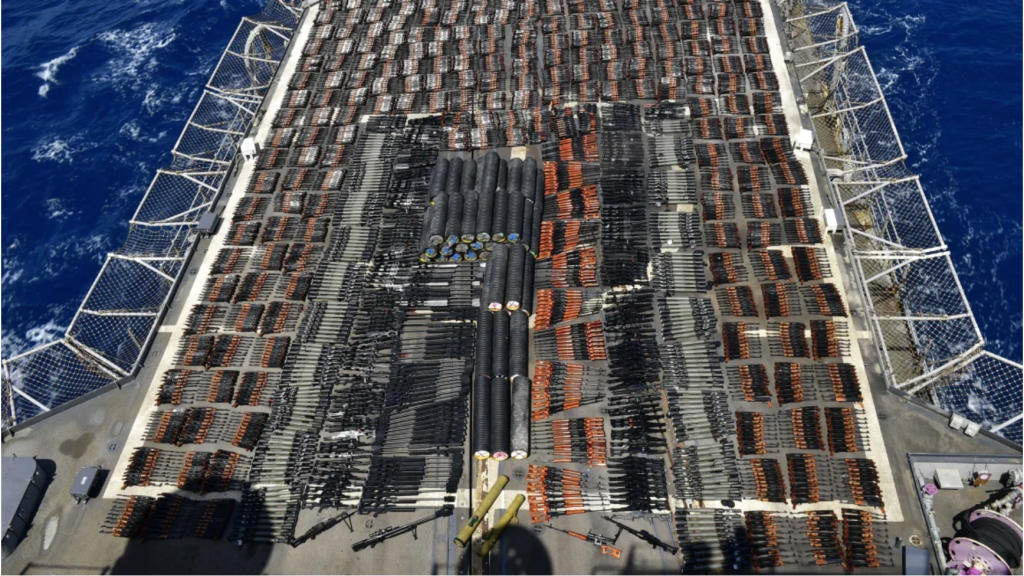Photo credit CC License: Ferdinand Reus from Arnhem, Holland.
Situation
The Houthis of Yemen have bombarded Red Sea commercial shipping against Western interests using the Iran regime’s funds, arms, training, and equipment with indirect benefit and support to Beijing and Moscow, whose Red Sea traffic is exempt from Houthi fires and Iranian harassment.
Naval and air strikes alone cannot stop the Houthi militants. Some say ‘boots on the ground’ are the only way to assert control. Yet that is not wise or feasible and would certainly fail the Powell Doctrine for the wise use of military force given U.S. interests in the current milieu.
Possible Option: Lethal Aid Blockade
While the Houthis aim to blockade the Red Sea by force, their blockade might force an international blockade of the Houthi territories in Yemen different in character from the Saudi Arabian blockade of seven years ago. A lethal-aid blockade of Houthi controlled territory could work if enforced by the Prosperity Guardian coalition members screening shipments for weapons and munitions headed to Yemeni ports, while letting food, humanitarian, and civilian aid in.
Over the midterm, such a blockade could deprive Houthi militants of weapons and ammunition by air, land, and sea until a Red Sea security deal is worked out with or without them. Yemen borders Saudi Arabia, Oman, and two Seas, however, the golden area shown below marks the Yemeni highlands including the capitol of Sana’a, where the Houthis control. It is a less ambitious area to cover than all of Yemen.

Lethal aid screening of cargo flights to Yemen would imply cooperation of governments in nations of origin and connection. However, cargo flights from non-cooperating governments imply interception, diversion and screening at coalition or cooperating governments’ airfields.
The Saudis blockaded Yemen while intervening in the Yemeni civil war after 2015. The Saudi blockade cut-off humanitarian and food aid from Hudaydah and other Yemeni ports. Humanitarian blockades imposing hunger and starvation on civilians are morally wrong and counterproductive. Moral authority is key to earned influence and leadership. It also goes to mutuality and comity in international relations.
Intelligence Objectives and Humanitarian Workarounds Planned in Advance
Intelligence objectives in support of the blockade should document for UN presentation any Houthi militant interception and deprivation of civilian humanitarian and food aid to the Yemeni population.
Should Houthi militants impose hunger and starvation on Yemeni populations as an information war tactic, then coalition supply balloons, air lifts, drones, and screened Red Crescent shipments of humanitarian aid could bypass Houthi militants and directly supply Houthi communities while winning hearts and minds and turning the population against the militants.
Reversing Iranian Terror and War Sponsorship
Seized weapons and ammunition headed for the Houthis should be set aside for the Iranian resistance to the dictatorial, revolutionary regime parasitizing Iran and the region with perpetually sponsored regional violence and destabilization. Still, beware of sabotaged shipments to prevent loss of sailors.

Beneficiary Shipping Nations’ Contribution to Blockade and Humanitarian Operations
Nations and entities benefitting from a cessation of Houthi militant attacks on Red Sea shipping not part of the Prosperity Guardian coalition should contribute financially to the costs to governments sponsoring the blockade as reduces the Houthi threat to make Red Sea shipping economical.
Iranian Contingencies
Possible attacks from Iranian forces on coalition navies blockading the Houthi militants would require a contingency plan for ending same. What that is exactly should not be telegraphed, but should be decisive in wiping out Iran’s missile, drone, marine militia, nuclear development, satellite launch, defense industry, and naval capabilities across the Middle East.

